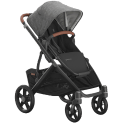
Foods to Avoid During Pregnancy
You’re eating for two now, and trying to make the healthiest choices for you and baby-to-be: eating a (mostly) well-balanced diet, staying hydrated, and taking a prenatal vitamin. But knowing what foods and drinks to avoid during pregnancy is equally important, and thankfully, it’s a relatively small list.
Here’s a rundown of the foods and beverages that should be limited or avoided while pregnant, plus help understanding why they appear on the do-not-eat list in the first place.
Why Should You Avoid Certain Foods During Pregnancy?
Pregnancy changes your immune system and can make you more susceptible to certain infections. Some foods are more likely to contain illness-causing bacteria, like salmonella, listeria, E. coli, and toxoplasmosis, and should be
If you accidentally consume contaminated food, it will be more difficult for your body to fight off potential infection, and more likely that you will become sick—if your infection is severe enough, it can even cause miscarriage or preterm labor. Additionally, anything you eat will affect your growing baby, too. These nasty bacteria can cross the placenta, putting your baby at risk for developing an infection, as well.
It’s not just foods that are likely to harbor bacteria that are off-limits, either. While caffeine or alcohol may not make you sick, they may have a negative impact on your growing fetus.
What Happens If You Accidentally Eat Food You Should Avoid?
First, cut yourself some slack—you’re growing a human (and likely pretty exhausted). If you start experiencing symptoms of food poisoning, including vomiting, stomach pain, diarrhea, fever, and body aches, call your healthcare provider immediately. Food poisoning generally occurs within three days of eating contaminated food, so it won’t take too long to know you’re in the clear. Of course, there’s no harm in reaching out to your doctor for reassurance, even if you’re feeling fine.
Foods You Should Limit During Pregnancy
Research suggests that moderate caffeine consumption during pregnancy does not increase the risk of miscarriage or preterm birth. What’s considered moderate? Less than 200mg of caffeine a day (for perspective, that’s about one 12 oz cup of coffee). Don’t forget caffeine can be found in sodas, teas, and chocolate, as well.
Foods You Should Avoid During Pregnancy
A healthy diet during pregnancy isn’t necessarily super restrictive, but there are some foods that pose a higher risk for foodborne illness. These are the foods that are considered off-limits and should be avoided whenever possible.
Raw or Undercooked Fish and Shellfish
Any seafood dish should be cooked until its internal temperature reaches 145° F. Raw and undercooked seafood may contain parasites and bacteria, including listeria, that can make you sick.
- Sushi with raw fish (sushi with cooked fish and shellfish is fine—hello, tempura rolls)
- Sashimi
- Ceviche
- Raw oyster, scallops, or clams
- Seafood labeled nova style, lox, kippered, smoked, or jerky
High-Mercury Fish
Some large fish contain mercury, a heavy metal that can cause health problems for pregnant women and their developing babies (in fact, even young children should avoid consuming high-mercury fish—it can have negative impacts on brain and other organ development).
- Swordfish
- Tuna: albacore, ahi, bigeye, yellowfin
- Sea bass
- Mackerel: gulf, king, spanish
- Grouper
- Marlin
- Orange roughy
- Shark
- Tilefish
If you’re a seafood lover, don’t despair—there are plenty of options that are safe to eat while pregnant, including:
- Light canned tuna
- Mahi mahi
- Shrimp
- Lobster
- Bass
- Anchovies
- Catfish
- Cod
- Herring
- Pollock
- Salmon
- Sardines
- Shad
- Tilapia
- Trout
Both salmon and anchovies are great options because they contain high amounts of omega-3 fatty acids, which improve your baby’s eye and brain growth during early development.
Raw or Undercooked Meat and Eggs
All meat and poultry should be cooked to the U.S. Department of Agriculture’s (USDA) recommended minimum safe internal temperature. Raw and undercooked meats can contain harmful bacteria and parasites, such as E. Coli, Salmonella, campylobacter, and toxoplasmosis. In other words, if you prefer your steak rare, you’re out of luck for the next nine months (but wouldn’t that make for a great first meal at home with your new baby).
Raw, undercooked, and unpasteurized eggs may contain salmonella, and should be cooked until both the yolks and whites are firm. If you’re making a casserole or baked dish containing eggs, it should reach an internal temperature of 160° F. It’s also wise to avoid eating anything that may contain raw eggs, including:
- Raw batter and dough
- Homemade eggnog
- Homemade Caesar salad dressing
- Tiramisu
- Eggs benedict
- Homemade ice cream
- Fresh or homemade hollandaise sauce
Note that store-bought ice cream is not on this list, and rejoice.
Unpasteurized Cheese, Milk, and Juice
Imported soft cheeses, like Brie, goat cheese, feta, Camembert, queso fresco, and blue-veined cheeses may be made with unpasteurized milk, which may contain listeria and other pathogens. Double check the label before whipping up a Greek salad. Unpasteurized juices and milks carry the same risks and should also be avoided.
Fortunately, the Food and Drug Administration (FDA) requires that all milk products distributed in the US are pasteurized, so any milk, cheese, or sour cream made in the US is totally safe for you to eat.
Hotdogs and Deli Meats
Deli meats and hotdogs being on the no-no list is a surprise for many moms-to-be—they’re precooked, after all. But there’s a small chance they could contain listeria, so if you plan to eat a club sandwich, you’ll want to heat any cold cut or deli meat until it is steaming hot. The same goes for:
- Hot dogs
- Cold deli meats (both the kind you have sliced at the deli and prepackaged options)
- Cold cured meats like lox and salami
Unwashed Produce
Once you’ve unpacked your fruits and veggies from the market, wash and scrub them under running water (just water—no soaps or detergents). Even produce with peels that aren’t eaten should be scrubbed because bacteria on the peel or skin can contaminate the fruit or vegetable when you cut them.
Premade Deli Salads
Premade deli salads may contain listeria, so if you get a craving for egg, tuna, pasta, or chicken salad, skip the grocery store or sandwich shop and make it at home. Make sure to thoroughly cook chicken or eggs, and opt for a low-mercury tuna option, like slapjack.
Raw Sprouts
Raw sprouts, such as alfalfa, clover, mung bean, and radish, have been linked to E. coli, listeria, and salmonella outbreaks. If you usually top a salad or sandwich with sprouts, think about using sliced endive, celery, or something pickled for some added interest and texture.
Alcohol
Heavy drinking—defined as having more than three drinks per occasion or more than seven drinks a week—causes fetal alcohol syndrome (FAS), a group of conditions that includes both physical symptoms and problems with learning and behavior. Because no amount of alcohol has been proven safe to consume while pregnant, your doctor or midwife will most likely advise against drinking, period.
When you’re pregnant, it’s equally important to eat a well-balanced nutritious diet, and to avoid and limit certain foods that pose a risk for you and your growing baby. While most food and drinks are perfectly safe to consume for moms-to-be, some—like raw or undercooked meat, unpasteurized cheese, alcohol, and beverages with excessive caffeine—should be avoided to ensure a healthy pregnancy.
 Car Seat Sale
Car Seat Sale
 Stroller Sale
Stroller Sale
 Home Sale
Home Sale
 Feeding Sale
Feeding Sale
 Activity & Entertainment Sale
Activity & Entertainment Sale
 Bath & Potty Sale
Bath & Potty Sale






 Car Seats
>
Car Seats
>
 Strollers
>
Strollers
>
 Cribs
Cribs
 High Chairs
High Chairs
 Baby Carriers
Baby Carriers
 Travel Cribs & Playards
Travel Cribs & Playards
 Wagons
Wagons
 Home
>
Home
>
 Bath & Potty
>
Bath & Potty
>
 Diaper Bags & Backpacks
Diaper Bags & Backpacks
 Toys
>
Toys
>
 Gifts
>
Gifts
>
 Clothing
>
Clothing
>

















 Infant Car Seats
Infant Car Seats
 Convertible Car Seats
Convertible Car Seats
 All-in-One Car Seats
All-in-One Car Seats
 Booster Car Seats
>
Booster Car Seats
>
 Travel Systems
Travel Systems
 Car Seat Accessories
Car Seat Accessories
 Single Strollers
Single Strollers
 Double Strollers
Double Strollers
 Single-to-Double Strollers
Single-to-Double Strollers
 Lightweight & Compact Strollers
Lightweight & Compact Strollers
 Jogging Strollers
Jogging Strollers
 Bicycle Trailers & Child Seats
Bicycle Trailers & Child Seats
 Stroller Accessories
Stroller Accessories
 Stroller Frames
Stroller Frames



































